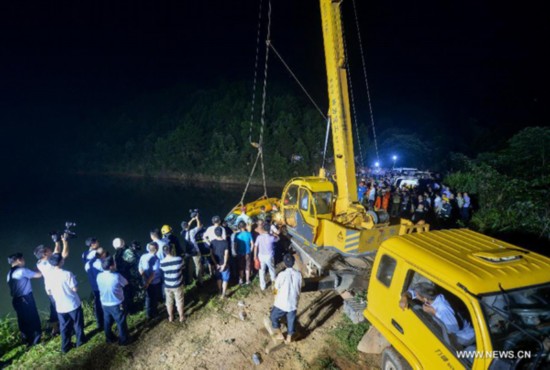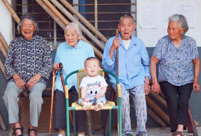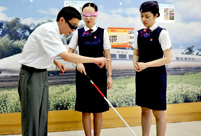 Happy life in Xinjiang
Happy life in Xinjiang
 2014 China Hainan Int'l Automotive Exhibition kicks off
2014 China Hainan Int'l Automotive Exhibition kicks off
 Collection of 'China Dream' public-spirited ads
Collection of 'China Dream' public-spirited ads
 The silent holy stones
The silent holy stones
 University students take care of giant pandas
University students take care of giant pandas
 Leading lady a true legend
Leading lady a true legend
 China Pan-Asia Stone Expo held in Kunming
China Pan-Asia Stone Expo held in Kunming
 Taiwan woman marries into Kazak family, 100 sheep plus a flat as dowry
Taiwan woman marries into Kazak family, 100 sheep plus a flat as dowry
 College girls take graduation photos under water in Chongqing
College girls take graduation photos under water in Chongqing
 Cartoon: Xi and football
Cartoon: Xi and football

A kindergarten bus is hauled out of a pond at the mountainous Ganzi Village in the Yuelu District of Changsha, capital of central China's Hunan Province, July 11, 2014. All 11 people aboard, namely eight kindergarten children, two teachers and the driver, died after the minivan fell into the pond on Thursday afternoon. The bus was then carrying the children home from the Lelewang Kindergarten at Jinqiao Village in the city of Xiangtan, adjacent to Changsha. (Xinhua/Bai Yu)
Experts are calling for legislation and tougher punishment to better regulate school bus services after 11 were killed in an accident in Hunan province.
"China's school bus safety rules are just administrative regulations, lacking the enforcement power that laws have," said Yu Yafeng, an education and school safety professor at Beijing Normal University.
"Without sufficient legal clout and adequate supervision, recommended safety protocols, vehicle quality criteria and driver training rules are usually poorly implemented," Yu added.
Eight of the 11 killed in the Hunan accident were kindergartners. They died when the minivan taking them home on Thursday afternoon fell into a pond, near Changsha, capital of Hunan, police confirmed on Friday.
The eight-seat minivan, hired by Lelewang Kindergarten in Xiangtan, was carrying 11 people, including a driver and two teachers. The wreck, in a remote, sparsely populated mountainous area was not immediately discovered.
"We thought it would be safe with a teacher taking one or two extra kids, even though the van was slightly overloaded," Lelewang Kindergarten teacher Zhou Aicun said on Friday.
An investigation is still underway, but Yuan Dianfan, deputy head of Xiangtan's Yuhu district, said some safety supervision lapses must have played a role.
Since 2010, China has been rocked by several fatal crashes involving modified and often overcrowded vehicles carrying schoolchildren.
Following a series of school bus accidents in 2011, the State Council, China's Cabinet, released school bus regulations in 2012, setting standards on such matters as vehicle safety equipment, driver certification and service qualifications.
But those regulations have not always been strictly heeded, said Wang Jingbo, a public policy professor at China University of Political Science and Law.
"Most of the serious school bus accidents happened in rural areas, where schools or local authorities have limited budgets for vehicle upgrades. More government funds must be provided, or third-party service providers encouraged with preferential policies," Wang said.
In July 2011, a nine-seat minivan carrying 64 kindergarten students and teachers from Zhengning county, Gansu province, crashed with a truck. Twenty-two passengers were killed. Five months later, a modified bus tumbled into ditch, killing 15 of 47 students from Shouxian Primary School in Xuzhou, Jiangsu province.
Both accidents happened in rural areas.
 How Chinese men kill the time when their wives practice square dancing?
How Chinese men kill the time when their wives practice square dancing? Chinese Navy frogmen in training: photos
Chinese Navy frogmen in training: photos Lishui, city of longevity with 186 healthy men above 100 years old
Lishui, city of longevity with 186 healthy men above 100 years old Hong Kong Fashion Festival kicks off
Hong Kong Fashion Festival kicks off Germany crush Brazil to advance to World Cup final
Germany crush Brazil to advance to World Cup final Danish badminton team plays Chinese social media users on Asia tour
Danish badminton team plays Chinese social media users on Asia tour Art on eggshells
Art on eggshells Test flight of Russian amphibian BE-103 in Shenyang, NE China
Test flight of Russian amphibian BE-103 in Shenyang, NE China Stewardesses of CHR trains experience walk with white cane
Stewardesses of CHR trains experience walk with white cane Picturesque Bashang Prairie through lens
Picturesque Bashang Prairie through lens 'Finding Nemo' in Seattle Aquarium
'Finding Nemo' in Seattle Aquarium 28 old villages in Hunan under preservation
28 old villages in Hunan under preservation Anti-terrorism drills held in Luliang, Shanxi province
Anti-terrorism drills held in Luliang, Shanxi province Hot weather drives citizens to play mahjong in water
Hot weather drives citizens to play mahjong in water Largest domestic UAV exhibition held in Beijing
Largest domestic UAV exhibition held in BeijingDay|Week|Month